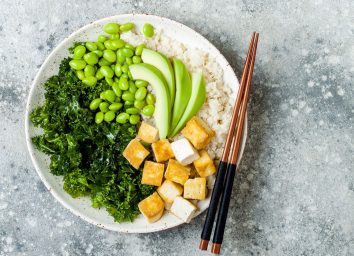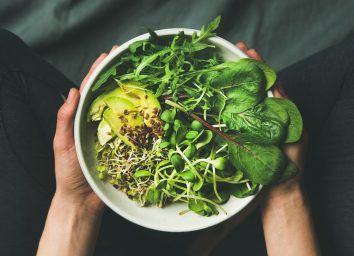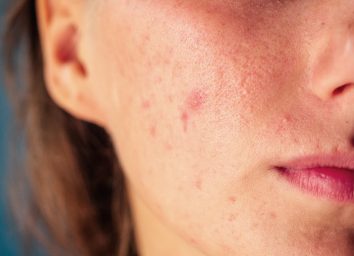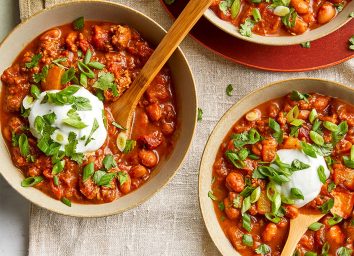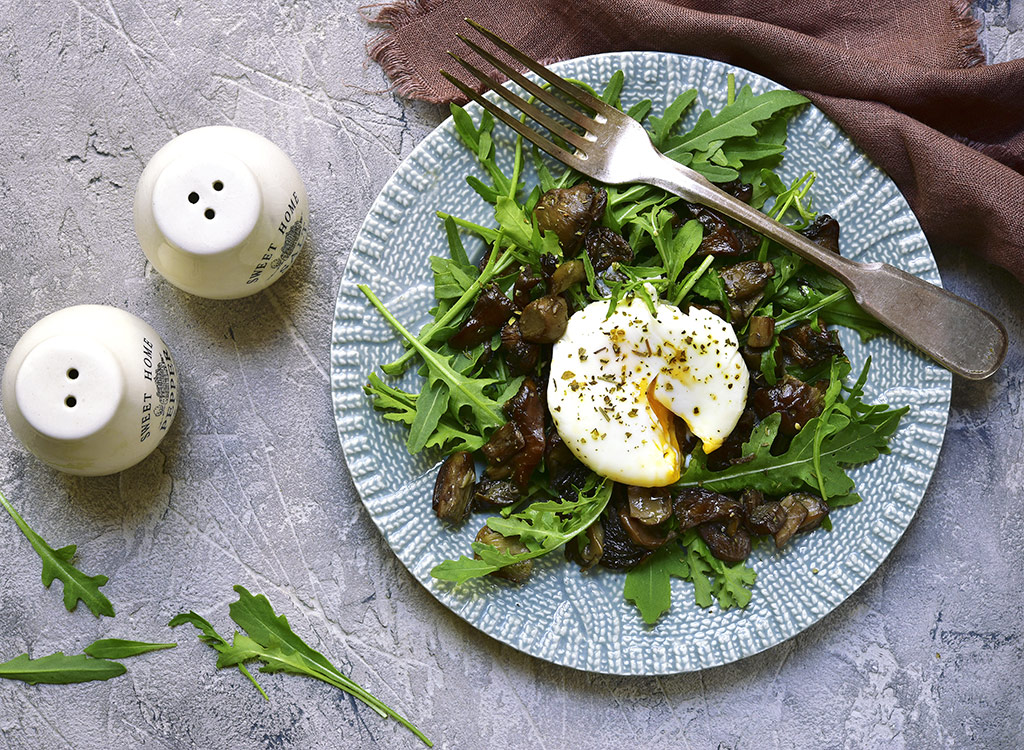
Constantly tired? A vitamin B deficiency might be to blame: Low vitamin B6 and B12 levels have been linked to anemia—which can leave you extremely exhausted and fatigued. And those are just two of the eight B vitamins that your body uses to convert food into energy and boost the health of your hair, nails, and skin. "They're all needed in order to survive," says nutritionist and bestselling cookbook author Toby Amidor, RD
All B vitamins (aka vitamin B-complex) serve different functions, and some deficiencies are much more likely in some B vitamins than in others. Vegetarians and women who are pregnant or want to become pregnant tend to be deficient in B6, B12, and folate. Read on to learn more about the benefits of B vitamins and the foods that can help ensure you're getting enough.
Vitamins B6 and B12

Vitamins B6 and B12 help your body make energy from the food you eat and form red blood cells, which carry oxygen throughout your body. Low levels can result in anemia, which means your body isn't getting enough O2, leaving you feeling exhausted. "B6 also regulates the hormones serotonin and dopamine, cell growth, and the immune system, and breaks down glucose, which can play role in diabetes," says Amidor.
While most of us get plenty of vitamins B6 and B12, women and older adults are at risk of a B6 deficiency. Moreover, the elderly and vegans are at an increased risk for a B12 deficiency. As you get older vitamin absorption becomes harder, and for vegans, B23 is found mostly in animal sources and nutritional yeast. But since nutritional yeast doesn't have enough B vitamins, plant-based folks should consider taking supplements or shots, Amidor says.
If you've undergone weight loss surgery or take an acid suppressor for acid reflux you might also be B12 deficient, says Julie Stefanski, RD, spokesperson for the Academy of Nutrition & Dietetics. "While it can take a really long time, but if you let it progress it could affect your neurological health and increase the risk of dementia," she says.
Folate
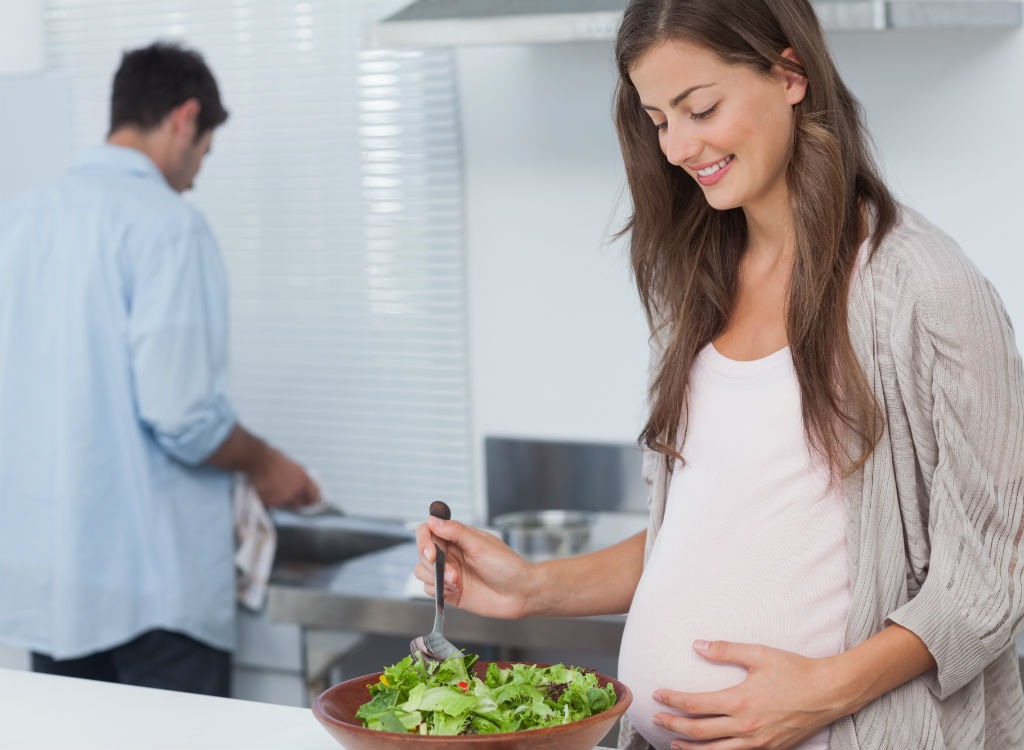
Folate (vitamin B9 or folic acid) is the other big B vitamin to keep an eye on. Folate helps form your DNA, which means it's necessary for every cell in your body. It's essential during pregnancy to prevent neural tube defects and spina bifida. "Folate is most important in the first 30 days of pregnancy when many women don't even know they're pregnant yet, which is why guidelines say that all women of childbearing age should take a supplement and have good sources of folate in their diet," says Stefanski.
While you probably don't have to worry too much about folate deficiency unless you're pregnant or have IBS or celiac disease, low levels can also cause a type of anemia and have been linked to cardiovascular disease, stroke, dementia, and Alzheimer's disease, among other conditions. "Because folate and B12 work hand in hand, if you have a deficiency in one and take a supplement, it can mask a deficiency of the other. That's why you should always get a blood test on both to tell which you're having," says Amidor.
Thiamin, Riboflavin, Niacin, Biotin, and Pantothenic Acid
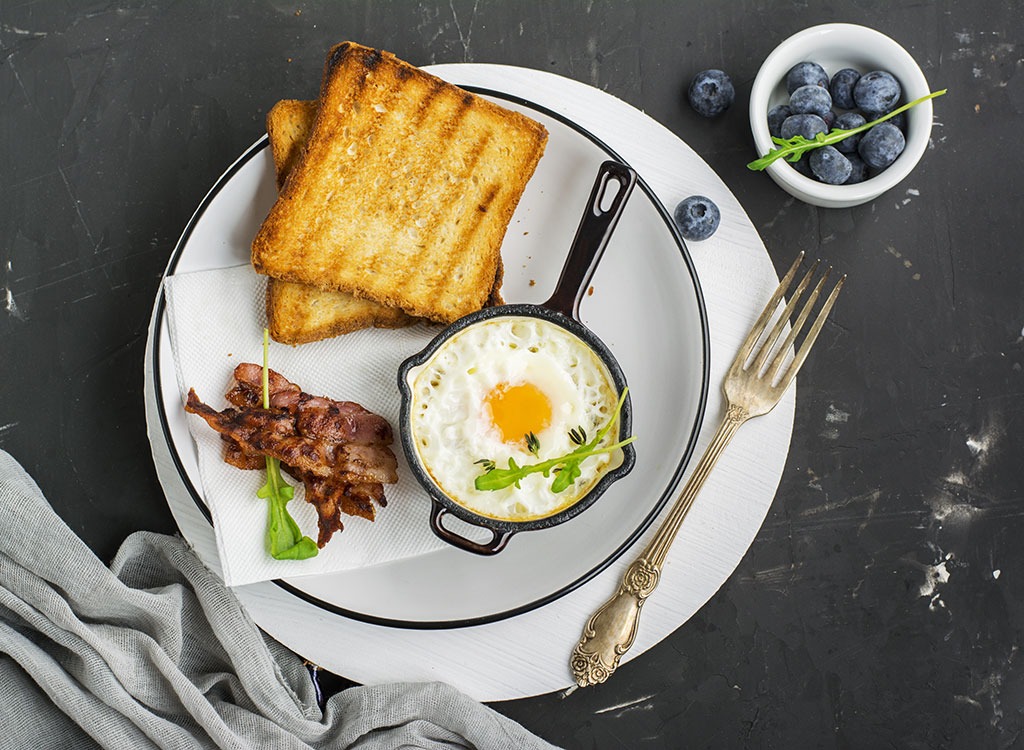
You may have heard about biotin already since many women take supplements to improve their hair, skin, and nail health. Fortunately, deficiencies in biotin (B7) and pantothenic acid (B5) are quite rare. The majority of Americans get enough thiamine (B1), riboflavin (B2), and niacin (B3) in our diets because they're all in fortified bread and cereals as well as eggs and dairy, says Amidor. But vegetarian athletes may be at risk for a riboflavin deficiency because your body needs more of these B vitamins if you work out often. Moreover, doctors have been noticing more cases of deficiency recently in people who have gastric bypass surgery due to limited diets and vomiting.
How Much Vitamin B Do I Need?
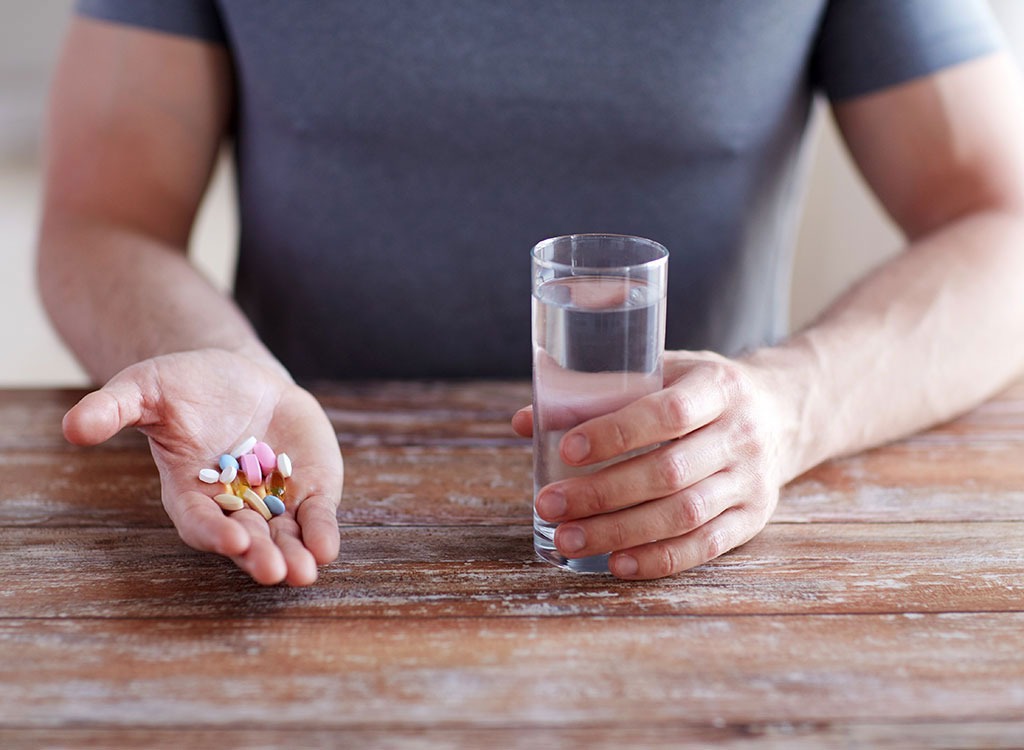
Because all B vitamins are water-soluble, our bodies don't store them as much as we do fat-soluble vitamins like A, D, E, and K. "With anything water-soluble, you want to eat these foods on a regular basis so your body is constantly replacing what you're losing," Stefanski. If you're concerned you're not getting enough, talk to your doctor to see if you should get tested for a deficiency.
But don't believe everything you hear about supplements. "Supplement manufacturers say if you take a lot of B vitamins you'll have more energy. That's not necessarily true unless you have a deficiency," says Stefanski. While it's hard to overdose on B vitamins, it is possible with a pill. Plus, studies don't back up claims that biotin supplements can help you grow your hair and nails faster unless you have a deficiency. "People think the more you take the better, but it doesn't always work that way," she says.
Looking to boost your B? Food is your best bet, and many are good sources of more than one B vitamin, says Stefanski. Here are 11 of the best food sources of B vitamins, along with ideas to prepare them.
Avocado
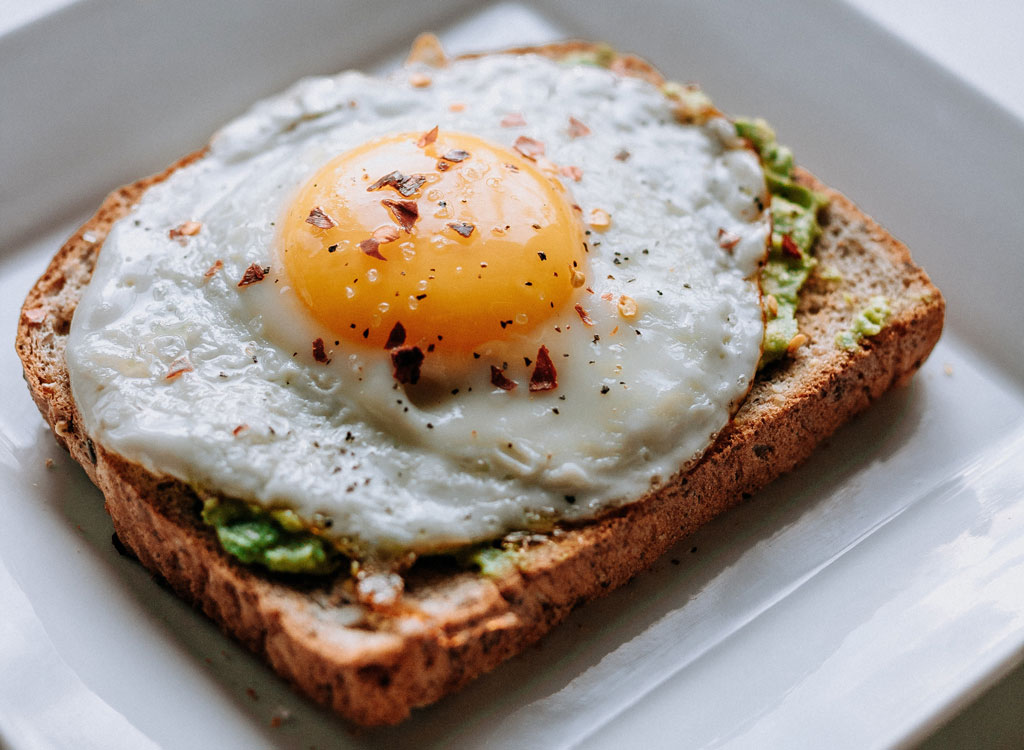
The grandfather of all superfoods, one whole avocado is packed with 41 percent of your daily folate needs, 26 percent B6, 28 percent pantothenic acid, 17 percent thiamin, and 9 percent riboflavin, as well as biotin and over 20 percent of your daily requirements for vitamins C, E, K, fiber, and potassium. "Avocadoes are super healthy, and even eat half of one is still a good source of nutrients," says Amidor. "Even though it is high in calories, it's very filling because of the healthy fat and fiber." She likes pureeing avocado and using it in classic dips like guac and hummus, blending it into no-cook cold soups, or using it as an alternative to oil in salad dressings.
Pork Tenderloin
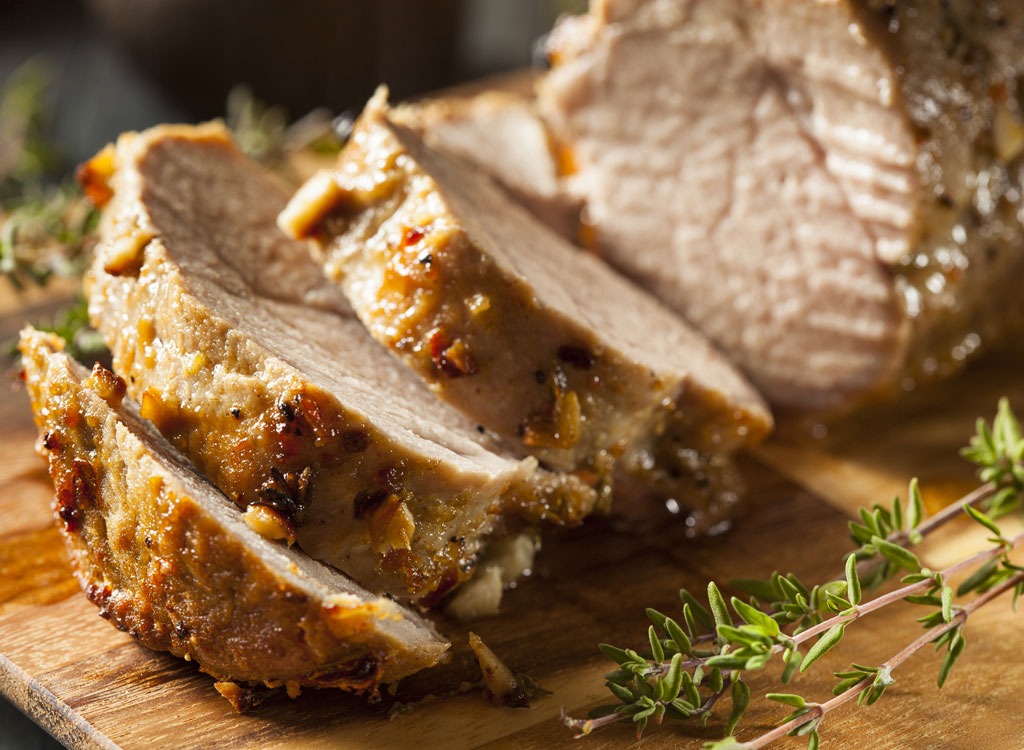
If you're a meat-eater, pork is probably your best bet for a laundry list of B vitamins. A 3-ounce serving of pork tenderloin has just 120 calories and less saturated fat than a chicken breast, says Stefanski. The bonus is that it's one of the highest sources of thiamin (54 percent), riboflavin (19 percent), niacin (37 percent), B12 (8 percent), and B6 (37 percent). It also has a bit of biotin, plus phosphorus, zinc, and protein. "If you're looking to enhance the nutrition of your stir-fry, pork tenderloin along with a lot of veggies is a good bet," she says. Or, swap it in place of chicken or red meat, like in sandwiches, tacos, chili, kabobs, and soups.
Plain Low-Fat Yogurt
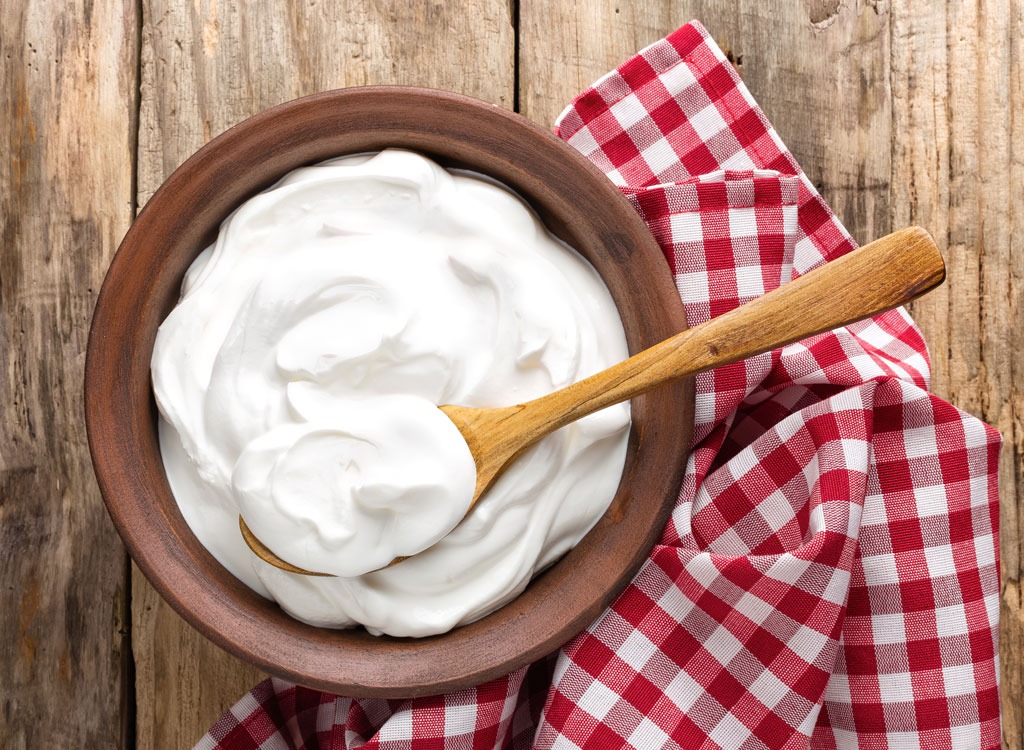
Like all dairy, yogurt is an awesome source of a bunch of B vitamins. One cup of plain, low-fat yogurt nets 31 percent riboflavin, 23 percent B12, and 14 percent pantothenic acid, plus biotin and bone-building calcium and around 10 percent vitamin D, if it's supplemented—along with phosphorus potassium, zinc, and selenium. Go Greek and you'll get twice as much protein per serving plus less sodium and sugars, which are cut back during the straining process. Amidor uses Greek yogurt to make popsicles, replace butter in baked goods, and prepare dips, sauces, and dressings, like in this eggs benedict recipe. Combining 50/50 with ricotta makes a lower-fat, high-protein pizza topping.
Salmon

"Even though you see a trend to more plant-based diets, most nutrition organizations still recommend including fatty fish like salmon two or three times a week. And most people aren't getting enough," says Stefanski. "Many people shy away from fish, but learning how to make it can benefit inflammation and health." In three cooked ounces of salmon, you'll get 40 percent B12, 34 percent niacin, 27 percent B6, 19 percent thiamin, and 12 percent pantothenic acid and some biotin. Like all fatty fish, salmon is your best source of omega-3s, which boosts your brain and heart health. Not a fan of salmon? Sardines, tuna, and mackerel are also good options.
Both Stefanski and Amidor recommend keeping it simple: Buy prepared fish that's already seasoned and comes with cooking instructions, or sprinkle a filet with salt, pepper, and slices of lemon and bake in the oven at 400°F for about 15 minutes, until it flakes easily with a fork. Or use canned salmon to make croquettes and burgers.
Chicken
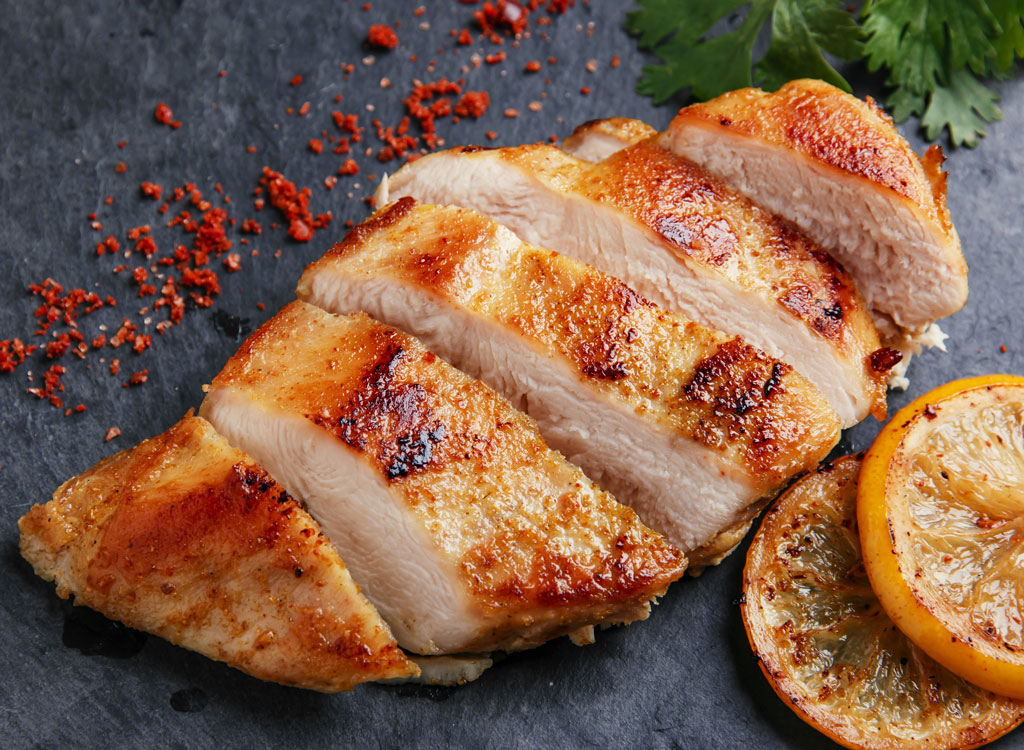
Aside from being an excellent source of the antioxidant selenium, a three-ounce chicken breast is loaded with 59 percent niacin, 26 percent B6, and smaller amounts of riboflavin and B12. Amidor likes to cook up extra chicken to top salads, throw into soups and stews, or toss in the blender to make burgers or chili.
Eggs
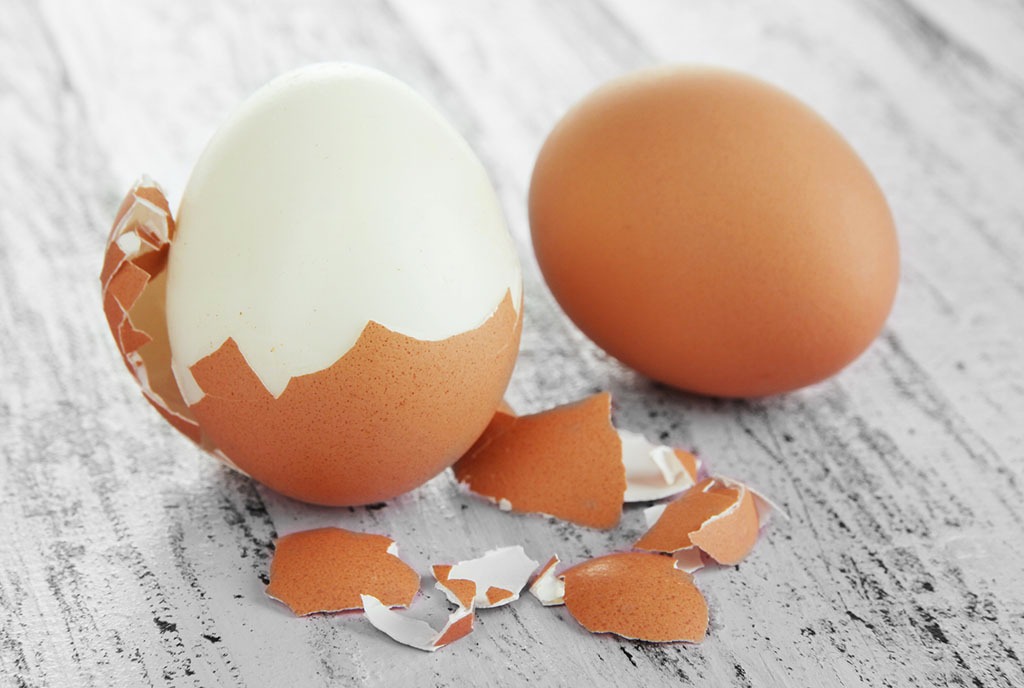
As one of the best sources of lutein—which helps with eyesight and skin elasticity—one large egg also delivers 14 percent riboflavin, 11 percent B12, and smaller amounts of folate, B6 and biotin. Depending on what the chickens are fed, eggs can also be a decent source of omega-3 fatty acids. Amidor eats eggs regularly at breakfast and also hard boils half a dozen to keep in the fridge for a quick snack topped with salt, Sriracha, chili pepper flakes, or paprika, or served alongside sliced tomatoes.
Sunflower Seeds and Butter

Like all seeds and nuts, sunflower seeds and sunflower butter are a good vegetarian bet for a bunch of B vitamins—plus, unlike many nuts, it's free of common food allergens. "Sunflower seeds provide a significant amount of folate, niacin, pantothenic acid, and vitamin B6 in only a small amount of food," says Stefanski. The insoluble fiber in seeds and nuts also helps keep you regular, and they serve up a dose of biotin, vitamin E, magnesium, copper, and zinc. Amidor, a nutrition partner with SunButter, recommends enjoying two tablespoons with meals and one tablespoon for snacks. She trades dairy-based butter for sunflower butter in pancakes and muffin batters to reduce the saturated fat and up the heart-healthy monounsaturated fats.
Nutritional Yeast
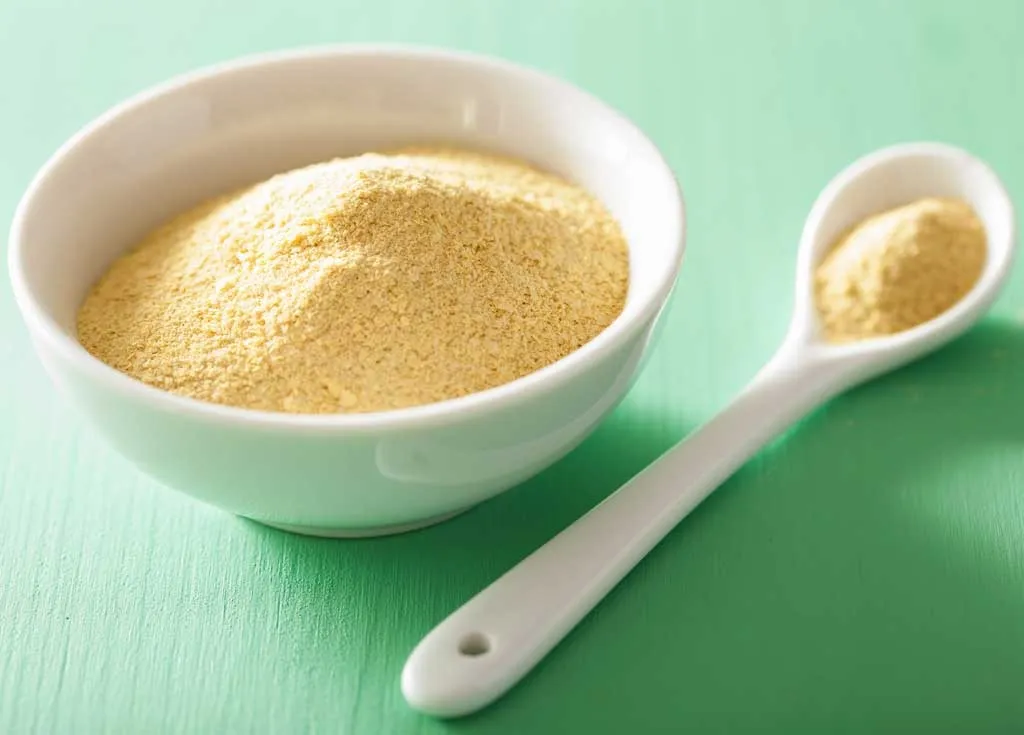
Unless you're a vegetarian, you may never have heard of vegemite—aka nutritional yeast. "People don't know how to use it, and it has a very unique taste that most people outside of Australia might not be familiar with," says Stefanski. But because it's fortified, it's a good source of all types of B vitamins. A one-third-cup serving is an excellent source of thiamine (50 percent), folate (50 percent), riboflavin (25 percent), and niacin (25 percent). Its cheesy flavor works best with sautéed greens or popcorn or as an alternative to Parmesan on top of spaghetti with pesto.
Chickpeas
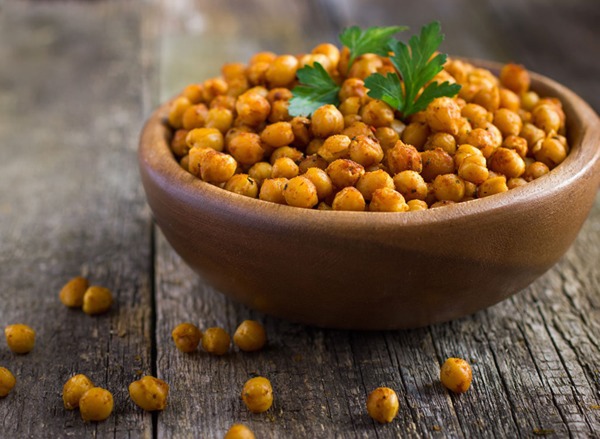
Chickpeas are one of the best vegan sources of B6, says Stefanski, supplying 20 percent of your daily needs plus 35 percent folate in half a cup. Other vegetarian-friendly sources of B6 include fortified breakfast cereals, potatoes, bananas, and bulgur. You'll also get loads of calcium, magnesium, potassium, and protein in chickpeas. "They're really great to support your microbiome because they have a type of soluble fiber that nourishes your gut bacteria. They're also a good source of iron, and most Americans are deficient. The mild flavor makes a good addition to many recipes," she says. Try tossing chickpeas into your salads or roasting them with olive oil, salt, garlic salt, and cayenne pepper for a filling snack. Or ground them up and add to muffin, brownie, and cookie recipes.
Beet Greens
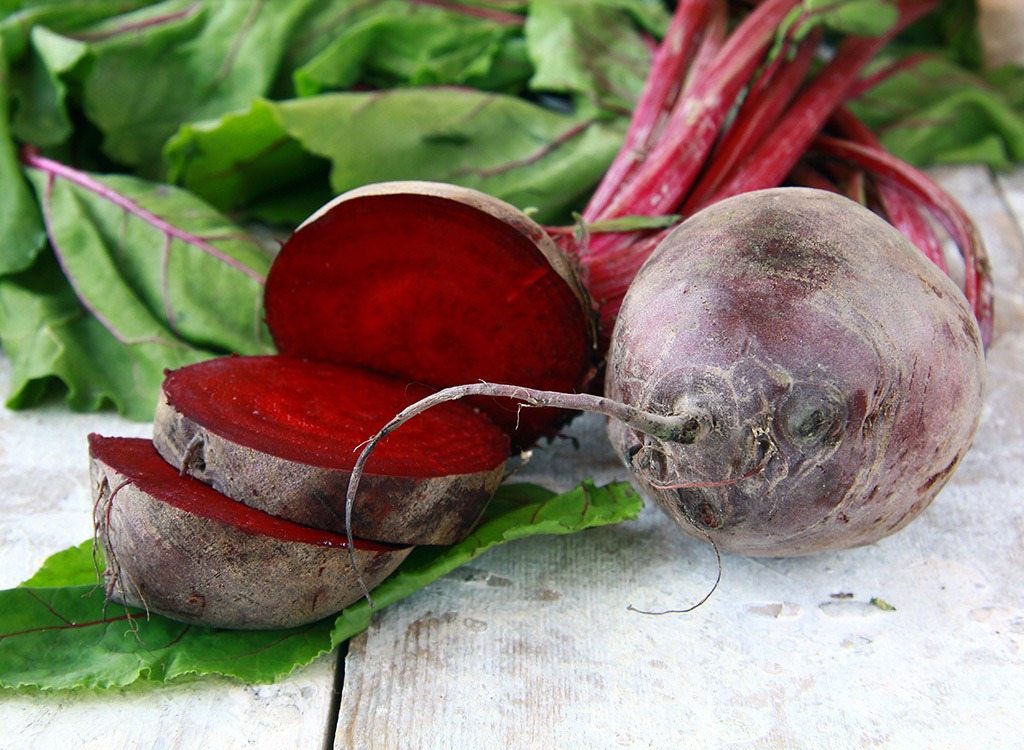
"Beets are very popular, but you don't hear as much about the greens," says Stefanski. "You're getting two different sources of nutrition if you buy both, and the top is where you get B vitamins." Beet greens are also high in nitrate, which several studies have suggested may help lower blood pressure. Because the taste can be strong, most people prefer them cooked and with other strong flavors like bacon. They can be sandy, so soak them in cold water while you're prepping your other vegetables and add to stir-fry or chilis, tossing them in toward the end of cooking.
Want to keep it simple? Spinach is similarly high in B vitamins—and it has a mild flavor that goes almost unnoticed blended into omelets, soups, rice, pasta, and smoothies. By cooking these greens, you'll get more nutrition packed into the same serving size as if you eat it fresh; 1 cup boiled spinach has 66 percent folate, 11 percent thiamin, and some riboflavin and B6, along with vitamins K and A.
Tofu
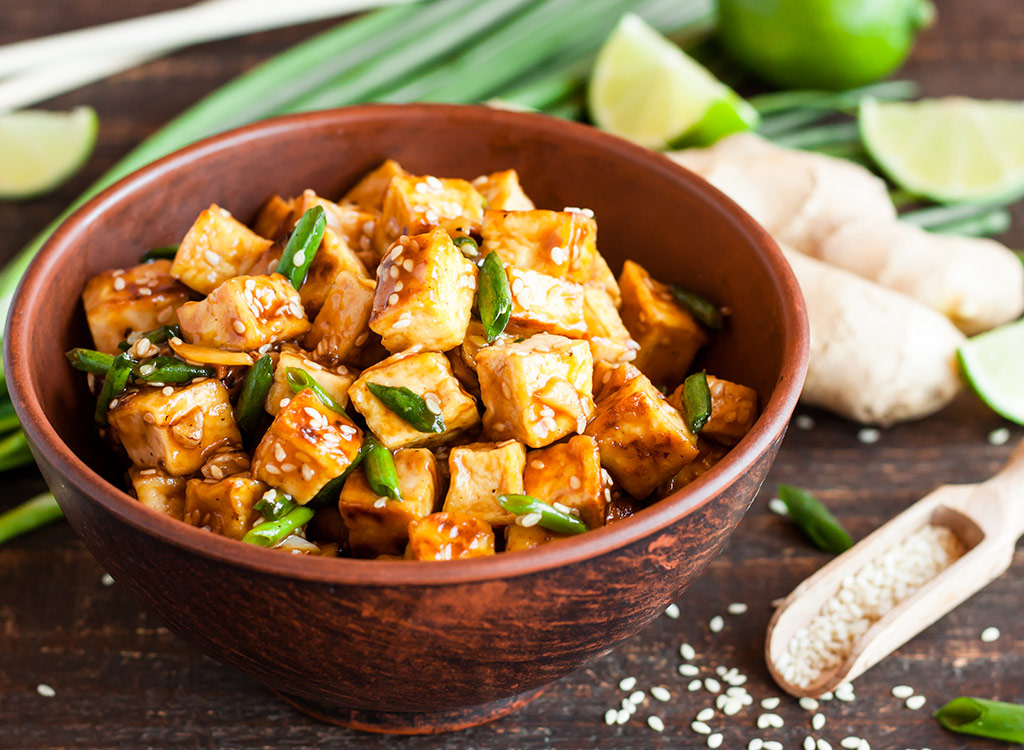
"Tofu is a fortified delivery method for B12 for vegans and veggies," says Stefanski. A three-ounce serving of the fortified stuff has 20 percent of your daily B6, B12, and riboflavin, and it's an excellent source of calcium and protein. Marinate and fry tofu to use anywhere you'd use chicken or beef—salads, sandwiches, soups, and stir fry. Don't like the texture or flavor? Choose silken tofu (often found in the salad section) and puree until smooth to add to pasta sauces and smoothies.
